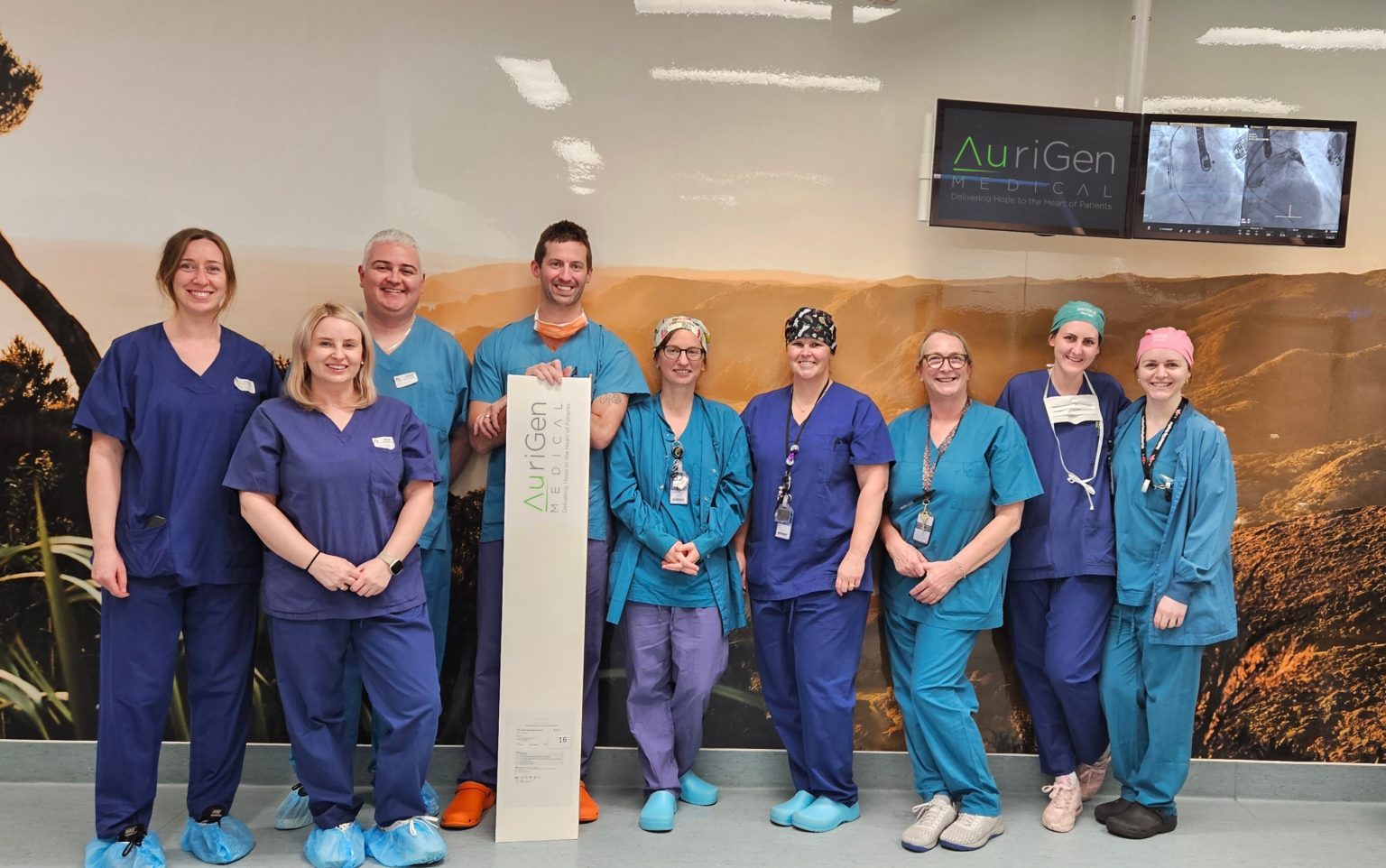AuriGen Medical, a company specialising in left atrial appendage occlusion (LAAO) technology, has announced the successful treatment of its first patient using its innovative “Zenith” device. The procedure, part of a first-in-human clinical study, was conducted at Auckland City Hospital in New Zealand by Dr Matt O’Connor, a cardiologist and electrophysiologist.
This breakthrough marks a significant step in the development of the Zenith device, which aims to simplify LAAO procedures for patients suffering from atrial fibrillation (AF). AF affects more than 60 million people worldwide and is a major contributor to stroke, with over 90% of stroke-causing clots forming in the left atrial appendage (LAA). For AF patients who cannot tolerate long-term anticoagulation therapy, closing the LAA is a critical means of reducing stroke risk.
The Zenith device offers a less invasive solution for LAA closure, using a minimally invasive procedure that involves a small incision in the groin. Once inserted, the device is guided to the heart, where it seals the LAA, significantly lowering the risk of clot formation. The system is designed for precision, allowing physicians to adjust the device’s placement to suit the patient’s unique heart anatomy.
Dr Matt O’Connor, who performed the procedure, praised the device’s performance. “I am very encouraged by how the Zenith device performed in this important first case,” he said. “The patient recovered exceptionally well and has been discharged home. Zenith’s independent anchors provide a distinct advantage, allowing for easy repositioning and optimisation without risking injury to the heart. Combined with real-time leak analysis during the procedure, this represents a major advance in LAAO technology for our AF patients at high stroke risk.”
The Zenith device is unique in its ability to offer intra-procedural checks, enabling physicians to reposition the device if needed. This feature allows doctors to perform leak analyses and adjust the implant for a more secure fit, reducing the chance of complications. Another standout feature is the device’s self-closing covering, designed to promote heart tissue growth over the implant, supporting long-term closure of the LAA and aiding recovery.
AuriGen Medical’s chairman, Pierre Chauvineau, described the success of the first procedure as a major milestone for the company. “This first-in-human procedure is a huge step forward for AuriGen Medical and for LAAO technology as a whole. As we move forward with clinical trials, we remain committed to improving outcomes for patients requiring LAAO and exploring additional applications for Zenith that could benefit a broader range of cardiac patients.”
With the increasing global prevalence of atrial fibrillation and the associated risk of stroke, innovations such as the Zenith device are set to play a crucial role in reducing health complications for AF patients. AuriGen Medical’s continued focus on refining and advancing LAAO technology could significantly enhance the treatment options available for this condition, improving patient care and outcomes.
The company is expected to continue its clinical trials, further assessing the safety and effectiveness of the Zenith device for wider use in the treatment of atrial fibrillation.


